“Your most important decision in remodeling your home IS NOT whether to take out a wall, add a bathroom, or select paint color,” says John Tabor, President of Tabor Design Build. “Your most important decision will be to choose the right contractor for the job.”
Home improvement contracting is the top complaint category reported by consumer protection agencies, according to the National Association of Consumer Agency Administrators and the Consumer Federation of America. In a survey of homeowners who had recently hired a home remodeler, 48 percent of respondents said they would NOT hire their contractor again. The Federal Trade Commission and various consumer protection groups report that home improvement contractors and the remodeling industry are responsible for more complaints than used car salesmen and mortgage brokers. What this boils down to is that many homeowners wind up spending thousands of dollars for low quality home improvement work, and spending countless days and sleepless nights coping with the high stress of dealing with it.
Contractors from Hell, an online consumer education site, was established to “protect homeowners through renovation education”. The site posts news articles and consumer protection tips on how to avoid incompetent remodelers, or worse –intentional scams.
The home improvement industry is essentially unregulated. There is no required training, mandatory apprenticeships, or requisite testing programs for the industry. The competency of workers, quality of products, and business aptitude of project managers is solely the responsibility of the company. Each year, the Council of Better Business Bureaus publishes a list of consumer services with the highest number of requests for background checks –evidence that a particular service industry is under greater scrutiny by consumers who are often worried about unscrupulous players. Remodeling and home improvement falls into this category.
“It is sometimes difficult for consumers to know what to look for in separating the good guys from the bad,” agrees Tabor. “The unscrupulous players make it difficult for all of us –we have to overcome the stigma associated with our industry in order to gain the confidence of the consumer –particularly when they come to us without a referral from someone they trust.”
According to Qualified Remodeler –a trade journal for the remodeling industry, timeliness is the number one determinant of customer satisfaction. Remodelers who met their deadlines and finished projects on time received the highest overall scores for customer satisfaction. The most common complaints among consumers of remodeling services are poor communication, poor craftsmanship, delayed projects, trash/dirt left on the jobsite, and unmet expectations.
“On one side of the spectrum, you have fully professional remodeling firms with trained and highly skilled staff and on the other side of the spectrum, you’re dealing with fly-by-night contractors,” explains Tabor. “While low-ball pricing may get someone’s foot through the door of an unsuspecting homeowner, the shoddy work, endless delays, and low-quality materials support our industry’s less than stellar reputation. Add to that the fact that 90% of home renovation businesses fail in the first five years, with contractors sometimes leaving jobs before they are completed, and the reasons for consumer skepticism become clear and warranted.”
Tabor, who has operated a successful home remodeling business in the Washington Metro area for more than 25 years, offers homeowners who are considering renovating their home some guidelines on how to find “the right” contractor:
1. Review the contractor’s license status. Home improvement contractors must be licensed and in good standing with their state’s Home Improvement Commission. It is always a good idea to review their license status and past history. Avoid hiring contractors with marks against their license. To check out remodeling contractors go to:
- In Maryland: http://www.dllr.state.md.us/pq/
- In The District: http://www.contractors-license.org/dc/DistofColumbia.html
- In Virginia: http://www.dpor.virginia.gov/LicenseLookup/
2. Member of the Better Business Bureau? Ask if the contractor is a member of the Better Business Bureau. Review the company’s performance and how issues were resolved at http://dc-easternpa.bbb.org/. If there is a history of complaints, this will indicate how the company conducts business.
3. Check references. Ask for references that include past and current clients, particularly those with home renovation projects similar in scope and size to your project. Make sure that they have more than just a couple references for the type of project that you are planning.
4. Ask for proof of insurance. Make sure the contractor is fully insured with both liability insurance, which covers property damage, AND workers’ compensation insurance, which covers personal injuries on the job site. Don’t risk hiring an uninsured contractor whose employee could be injured working on your home and hold you liable.
“At Tabor Design Build, we are happy to have potential customers check out our flawless record and our high regard within our community,” invites Tabor. “We provide a reference sheet with more than just a few happy satisfied customers –some of whom will invite you to their homes to check out our work firsthand. We are fully insured and welcome the opportunity to provide you with a copy of our insurance certificate.”
5. Determine percent of revenue from ‘change orders’. Change orders occur when a so-called “unexpected” block of work must be added to the original work order, typically causing additional costs in labor, materials, or both. Some not-so-reputable companies intentionally bid low, planning to add in seemingly unexpected costs later. These companies may earn as much as fifty percent or more of their total income from supposedly unplanned cost overruns as a result of this practice.
6. Get assurance that employees are permanent. Many companies hire day laborers and other temporary employees without any type of background check or references. Some local companies bring people from jail work release programs to their customer’s homes without knowing if they were incarcerated for a violent or victim-related crime.
“Only about two percent of our total revenue is due to unanticipated costs, with most of these being client driven –‘while you’re here, could you add this’”, assures Tabor. “With regard to our construction crews, you can rest assured that we only use payroll employees, and that we conduct criminal background checks, as well as check past references for everyone we hire. In addition, we only work with sub-contractors who have the same policies regarding permanent employees. We insist that the same people we are inviting into your home to meet your family, are the same people we would bring into our own homes to meet our families.”
7. Ask about financing and tax credits. Many homeowners cannot afford to or don’t want to pay for their total renovation project up front. This is understandable. A reputable company should be able to assist you in locating financing options that work for you, as well as informing you of available tax credits.
8. Meet your prospective contractor and trust your instincts. Schedule a meeting with a potential remodeling contractor in your home to discuss the project. Visit their showroom, if they have one. Each time you meet with a different contractor, trust your instincts. Remember, you may be working with your home improvement contractor for several months, so make sure this is someone you trust and can get along with.
9. Ask lots of questions and take notes. Best to risk offending the contractor by asking some hard questions, than to pay for your mistake in time, money and aggravation once the project has begun. Reputable and competent contractors welcome informed customers who ask valid questions –they will never pass up the opportunity to boast about their achievements and display their credentials –earned after years of hard work and successfully completed projects.



